Gout Sleep Risk Calculator
Assess Your Nighttime Gout Risk
Enter your daily habits to calculate your risk of nighttime gout flare-ups
Ever wonder why a joint that hurts during the day seems to flare up just as you’re about to drift off? That’s the tricky link between gout and sleep. Below you’ll find the science behind nighttime attacks, practical steps to quiet the pain, and when a doctor’s help becomes essential.
Key Takeaways
- Gout’s inflammatory attacks often peak at night, disrupting sleep.
- High uric‑acid levels, alcohol, and certain foods can worsen nighttime symptoms.
- Timing medication, staying hydrated, and adjusting sleep environment can dramatically improve rest.
- Persistent insomnia or severe pain warrants medical evaluation.
How Gout Disrupts Sleep
When gout Gout is a form of inflammatory arthritis caused by crystal deposits of uric acid in joints flares, the body's immune response releases pro‑inflammatory cytokines. Those chemicals (like IL‑1β and TNF‑α) trigger sharp pain, swelling, and a burning sensation that intensify when you lie still. Studies from 2023 show that 60% of gout patients report their worst attacks occurring between 10p.m. and 2a.m., precisely when the body’s natural anti‑inflammatory hormones dip.
Two physiological factors converge:
- Body temperature drop - As core temperature falls for sleep, blood flow to extremities increases, delivering more uric‑acid crystals to the joint.
- Circadian cortisol rhythm - Cortisol, a natural pain‑killer, hits its low point around midnight, removing a protective buffer.
Typical Nighttime Symptoms
People with gout often experience a distinct set of night‑time signs. Recognizing them helps you decide whether a simple lifestyle tweak will do or if a prescription is needed.
- Joint pain characterized by sudden, intense throbbing, usually in the big toe or ankle that awakens you from deep sleep.
- Swelling often accompanied by a shiny, tight skin appearance.
- Warmth and redness that feel like a fever, even though body temperature stays normal.
- Restlessness - you may toss and turn trying to find a comfortable position.
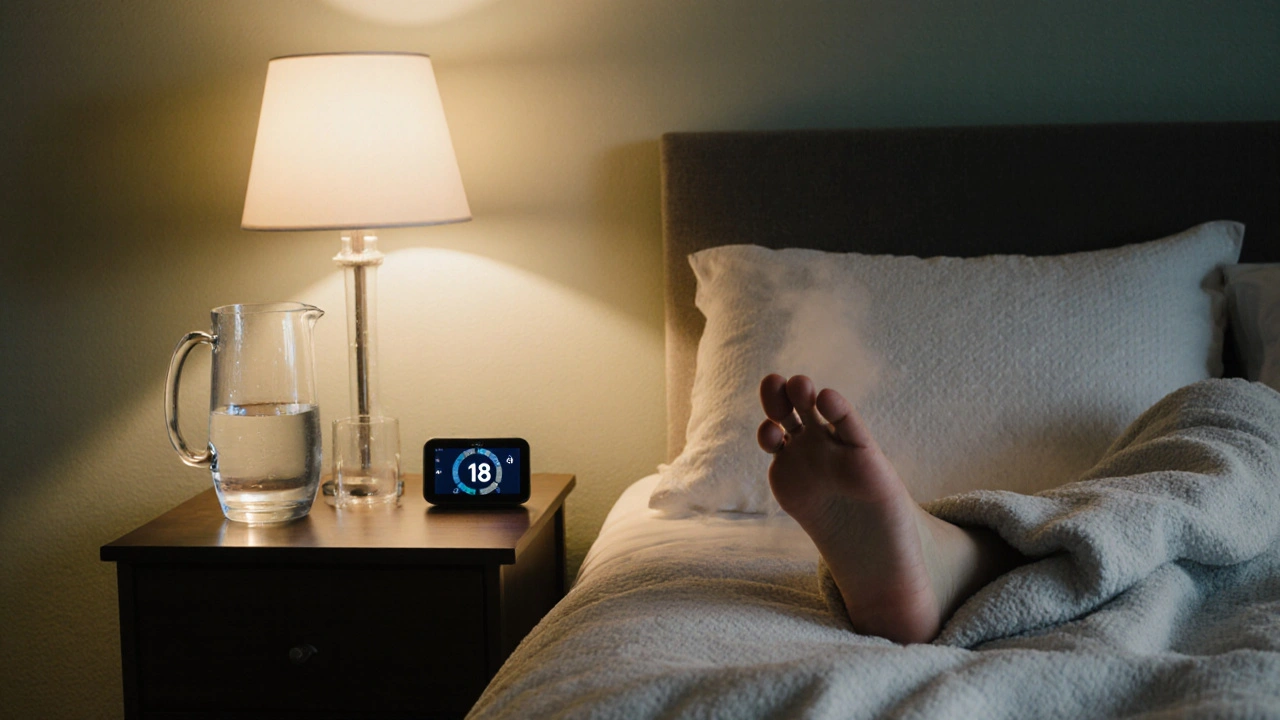
Gout’s Connection to Common Sleep Disorders
Beyond the immediate pain, gout can aggravate broader sleep issues:
- Insomnia difficulty falling or staying asleep caused by chronic pain - the anxiety of another flare keeps the mind racing.
- Sleep apnea - research shows obesity, a gout risk factor, also raises apnea risk, creating a vicious cycle of poor oxygenation and inflammation.
- Restless Leg Syndrome - elevated uric‑acid levels may heighten nerve irritability, worsening leg sensations at night.
According to a 2022 Australian cohort, gout sufferers were 1.8times more likely to report clinically significant insomnia than the general population.
Medication Timing for Better Rest
Many patients rely on drugs to curb flare‑ups, but when you take them matters.
| Medication | Typical Dose | Best Time to Take | Sleep Impact |
|---|---|---|---|
| Colchicine an anti‑inflammatory that blocks crystal‑induced inflammation | 0.6mg | Early evening (6‑7p.m.) | Can cause stomach upset; generally neutral for sleep. |
| NSAIDs non‑steroidal anti‑inflammatory drugs like ibuprofen | 400-600mg | 30minutes before bedtime | May reduce pain enough for uninterrupted sleep; watch for nighttime heartburn. |
| Allopurinol a urate‑lowering drug taken long‑term | 100-300mg | Morning with food | Doesn’t directly affect sleep but stabilizes uric‑acid levels, lowering flare risk. |
Take note: avoid NSAIDs within a few hours of a heavy meal if you’re prone to reflux, as that can wake you up.
Lifestyle Tweaks That Quiet Nighttime Flares
Medication works best when paired with daily habits that keep uric‑acid in check.
- Hydration: Aim for at least 2.5L of water daily. Proper fluid intake dilutes uric‑acid, helping the kidneys flush crystals.
- Alcohol moderation: Beer and spirits raise uric‑acid production; limit to one drink on weekends or switch to low‑purine wine.
- Purine‑rich foods - limit red meat, organ meats, and shellfish. Substitute with low‑purine proteins like tofu or legumes.
- Weight control: Even a 5% body‑weight loss can cut uric‑acid levels by 0.5mg/dL, reducing flare frequency.
- Foot elevation during sleep: propping the affected limb on a pillow reduces blood pooling and eases pressure.
- Cool bedroom: Keep the room around 18°C (64°F). Cooler temps limit peripheral blood flow that can bring crystals to the joint.
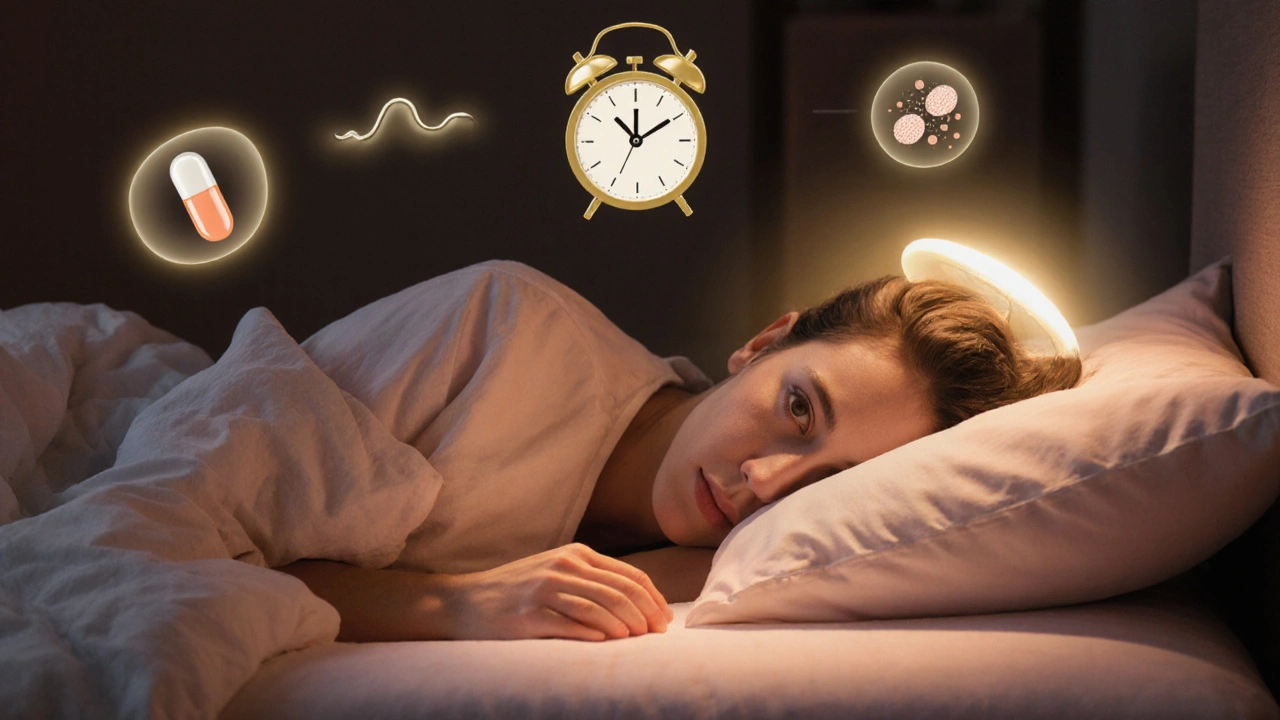
Sleep‑Friendly Environment
Beyond gout‑specific actions, set up a sleep sanctuary:
- Use blackout curtains to keep melatonin production steady.
- Limit blue‑light exposure 1hour before bed - swap phone screens for a paperback.
- Establish a consistent bedtime routine; the body thrives on predictability, even when joints protest.
When to Call a Healthcare Professional
Not every night of pain signals a simple flare. Seek help if you notice any of these red flags:
- Fever above 38°C (100.4°F) accompanying joint pain.
- Persistent insomnia lasting more than two weeks despite medication and lifestyle changes.
- Swelling that spreads rapidly or involves multiple joints.
- Kidney‑related symptoms such as reduced urine output or flank pain.
Your doctor may adjust dosages, prescribe corticosteroids for an acute night attack, or recommend a referral to a rheumatologist for long‑term urate‑lowering therapy.
Frequently Asked Questions
Why does gout pain often get worse at night?
When you lie down, blood flow to the extremities increases, delivering more uric‑acid crystals to the joint. At the same time, cortisol-the hormone that naturally dampens inflammation-drops to its lowest level around midnight, removing a key pain‑relief buffer.
Can drinking water really help my gout flare at night?
Yes. Adequate hydration dilutes serum uric‑acid, making it easier for the kidneys to excrete excess crystals. Aim for at least 2.5L (about 10 cups) of water a day, and avoid sugary drinks that can raise uric‑acid levels.
Is it safe to take NSAIDs right before bed?
Taking a dose 30minutes before sleep can blunt the pain enough to stay asleep, but people with acid reflux or heart issues should discuss timing with their doctor to avoid nighttime stomach irritation.
What foods should I avoid to prevent night‑time gout attacks?
Limit high‑purine items like red meat, organ meats (liver, kidneys), shellfish, and anchovies. Also reduce sugary beverages and excessive alcohol, especially beer, which can spike uric‑acid production.
When is it time to see a doctor for gout‑related sleep problems?
If pain or swelling wakes you up more than two nights a week, if you develop a fever, or if insomnia persists despite medication, schedule an appointment. Persistent sleep loss can worsen inflammation and overall health.

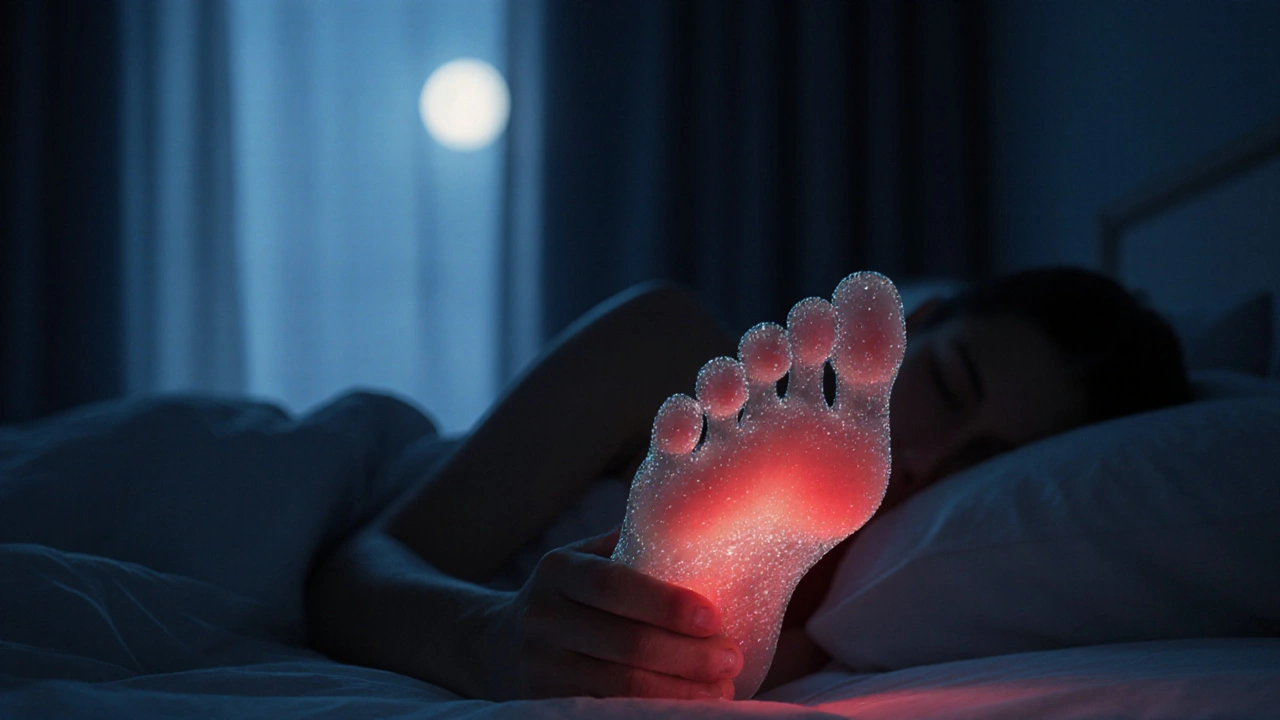
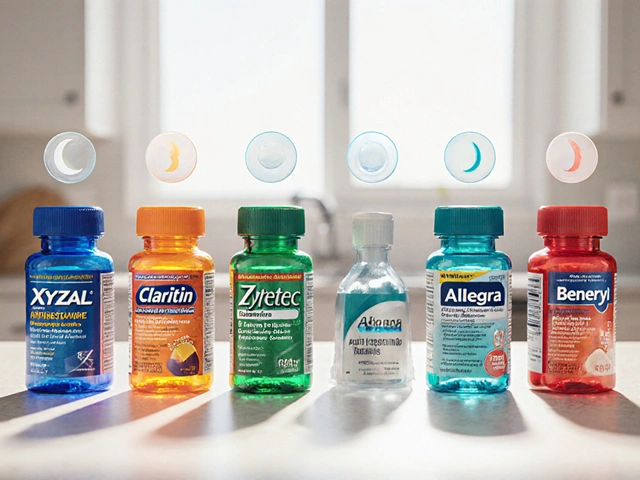


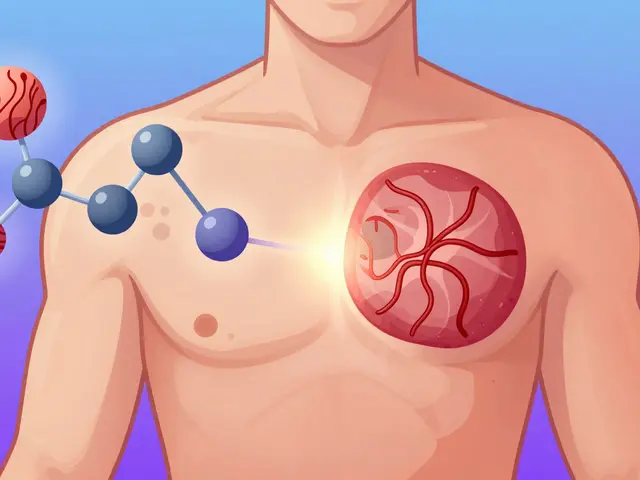
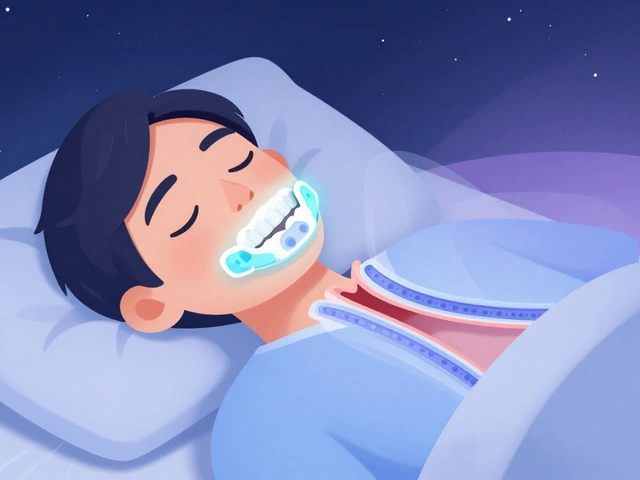
Vicki Roth
October 12, 2025 AT 16:58